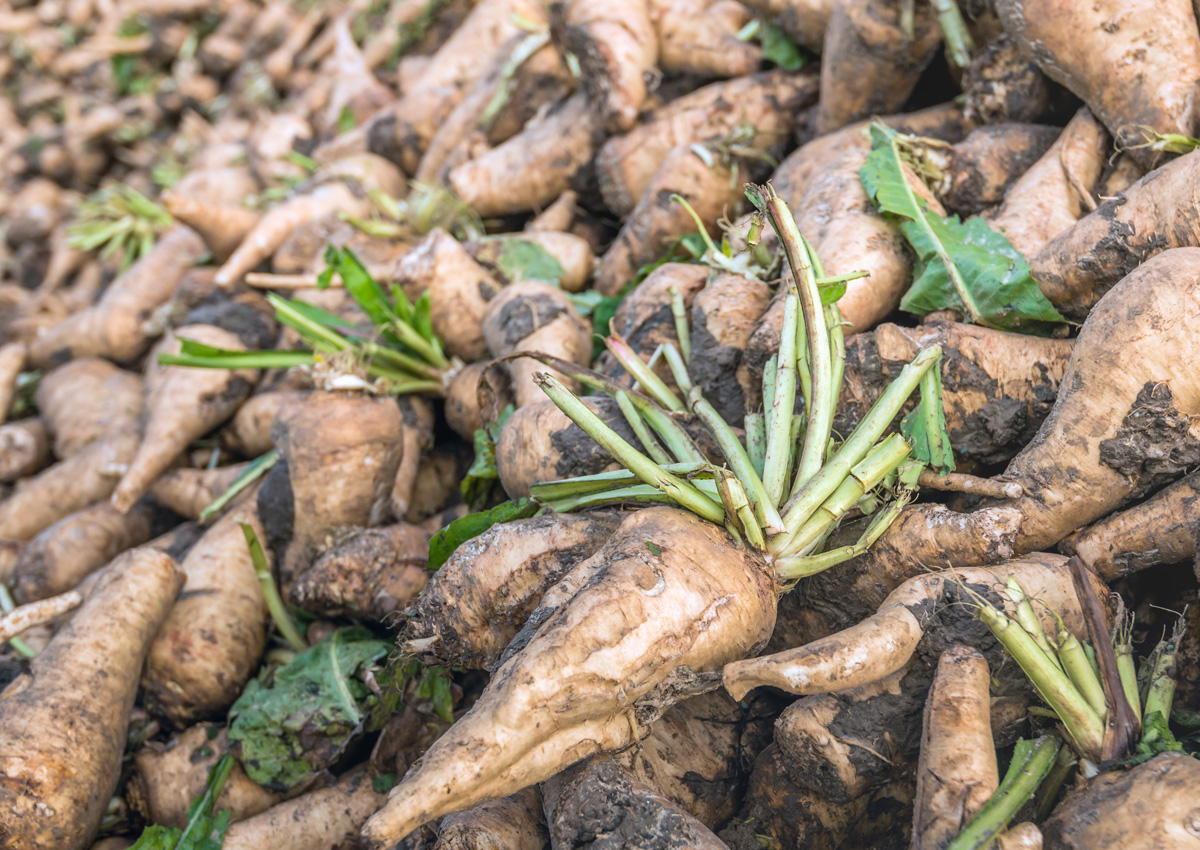
CRISPR Takes Out Bitter Compounds in Chicory
July 28, 2021| |
Researchers led by Wageningen University and Research (WUR) and the European CHIC Project have identified the genes involved in the production of bitter compounds in chicory using the gene editing tool CRISPR-Cas.
Chicory's taproots are a source of inulin, a natural sweetener used in bread and dairy products and as dietary fiber for healthy intestinal function. According to WUR plant researcher Katarina Cankar, inulin must be separated from the bitter compounds called terpenes (that are also in the root) as they cause a bitter taste. Using CRISPR-Cas, they were able to develop a chicory plant that no longer contains those bitter compounds. "This will make the processing cheaper and easier, and in turn more sustainable, and will make a broader application of inulin possible," Cankar added.
Paul Bundock of KeyGene explains that they switched off four genes that are responsible for the bitter substances. To do this, they took cells from the leaf, treated them with the technology, and then allowed them to grow in the greenhouse. Cankar said it was technically difficult, but they learned which genes are involved in the production of bitter compounds.
For more details, read the news article in the WUR News.
| |
You might also like:
- GM Chicory Brings Hope to African Malaria Patients
- GM Plants Could Help Eliminate Food Poisoning
- Chicory (Cichorium intybus) GM Events
Biotech Updates is a weekly newsletter of ISAAA, a not-for-profit organization. It is distributed for free to over 22,000 subscribers worldwide to inform them about the key developments in biosciences, especially in biotechnology. Your support will help us in our mission to feed the world with knowledge. You can help by donating as little as $10.
-
See more articles:
-
News from Around the World
- RNA Breakthrough Creates Rice and Potatoes that Grow 50% More; Tolerate Drought
- Meta-analysis Shows that Future Food Demand Will Increase between 35-56% over the Period 2010-2050
- Golden Rice Now Approved for Commercial Planting in the Philippines
- Gene Drive Regulations to Evolve as the Technology Advances -Experts
- Scientists Say Modern Biotech Tools Beneficial for West Africa's Yam Industry
- UPLB's Bt Eggplant Approved for Consumption in the Philippines
- Leading Groups Urge UK Government to Take Action to Harness Unique Contribution of Plant Genetic Innovation
- Study Finds Genome-Edited Foods Found Generally Acceptable by UK Consumers
-
Research Highlights
- Study Reveals Gene Involved in Stem Rust Resistance in Wheat
-
Plant
- CRISPR Takes Out Bitter Compounds in Chicory
- Book Tackles Genome Editing Techniques for Climate-Smart Crops
- First GM Marsupials Developed with CRISPR
-
Read the latest: - Biotech Updates (January 14, 2026)
- Gene Editing Supplement (December 17, 2025)
- Gene Drive Supplement (February 22, 2023)
-
Subscribe to BU: - Share
- Tweet

